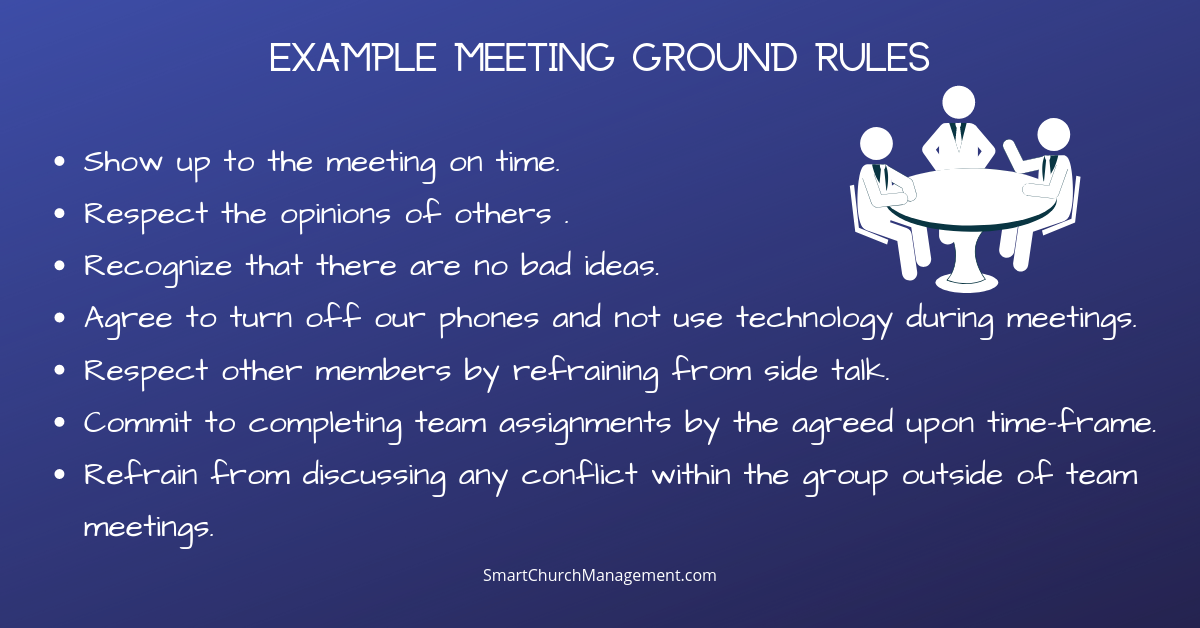Estimated reading time: 6 minutes
It’s hard to believe we are in the 4th quarter, and 2025 will quickly arrive!
Hopefully, by now, you are well underway with developing your 2025 goals.
Many churches use teams, counsels, or committees to get work accomplished.
Regardless of what you call your team, a defined team charter will help ensure the team accomplishes what it was charged to do.
What is a Team Charter?
A team charter is a written document that describes the purpose, approval process, and goal of the team that is charged with the responsibility of its outcome.
Team charters are used when a work team is formed, a committee is commissioned, or a project is initiated.
Why Write A Team Charter?
A team charter is developed by the team, approved by the team sponsors, and clarifies what the team is responsible for doing, the boundaries within which it works, and how it supports the organization’s overall strategy.
Also included are key team members and their defined roles.
For example, a team may have members, a team leader, and a facilitator as part of the working group.
The charter would define these roles and give clarity to expectations for members of the team.
6 Things To Include In A Team Charter
1. Team Purpose
Every team needs a defined purpose. Create a purpose statement that reflects why the team exists.
For instance, the purpose of the Human Resource Committee is to ensure ministry employees thrive in a positive work environment, are provided with the necessary resources and training to fulfill job responsibilities, and are compensated fairly.
2. Team Mission
The team mission provides the focus for what the team is trying to achieve.
For instance, the Human Resource Committee’s mission is to understand the employee perspective and develop working plans to continually improve the employee experience.
3. Team Goal
Goals give a team a measurable outcome to strive for that supports its purpose and scope.
You can test the goal by simply asking, “How will we measure whether or not we achieved our goal?”
For instance, a goal of the Human Resource Committee might be to ensure the ministry compensation strategy matches market pay practices.
You would measure this goal by an annual audit that compares pay range and benefits information with comparable ministry jobs.
4. Team Roles
Every team member should have a role on the team.
Champion – The leadership person who initiated the formation of the team. For instance, if a church board member led the efforts to form a Human Resource Committee, that person would be considered the team Champion.
Sponsor—The Champion assigns a sponsor to ensure the team is supported and provided with the necessary tools to do its job.
For instance, the Church Board Champion may ask the Business Administrator to Sponsor the team to ensure it has the necessary resources to do its job.
Team Leader—A team leader is the person who heads up the team. They are responsible for selecting team members and ensuring the team’s goals are achieved.
The team leader directs the team, works to secure the trust of team members, and helps them achieve team objectives.
This person handles all logistical planning for team meetings and ensures the accurate record-keeping of meeting notes.

Facilitator—A team facilitator assists the team leader by observing team dynamics, processes, and interactions.
This trained facilitator helps with team building, conflict management and makes suggestions for improving processes that help the team work toward its goal.
For instance, if the team has a person with a strong personality, the team facilitator may intervene if one person is dominating a discussion.
Or may help the team leader bring a challenging discussion to an end.
Timekeeper—A timekeeper may be one of the most important roles on a team. This person is responsible for keeping the meeting to its predetermined agenda times and reminding the group when there is limited time for discussions.
Scribe—The scribe is responsible for writing the meeting minutes, maintaining records, and distributing them to team members.
Team Members – Team members should be diverse and represent subject experts.
For instance, a Human Resource Committee may have subject experts in the areas of compensation, labor law, organizational development, training, or finance.
The goal is to have all the necessary experts represented to cover every area.
For instance, an HR Committee may make recommendations for a compensation strategy, but if finance isn’t represented on the team, the group might miss any guidance on fiscal limitations.
Not every team has all of these roles, and some teams utilize one person for a couple of roles. For instance, the team leader may take on the roles of timekeeper and scribe.
5. Meeting Ground Rules
No one likes spending their time in unproductive or conflict-ridden meetings.
Meeting ground rules ensures that all team members understand meeting expectations, such as time limits, participation, and acceptable team behaviors.
Example Meeting Ground Rules
- Show up to the meeting on time.
- Respect the opinions of others.
- Recognize that there are no bad ideas.
- Agree to turn off our phones and not use technology during meetings.
- Respect other members by refraining from side talk.
- Commit to completing team assignments by the agreed upon time-frame.
- Refrain from discussing any conflict within the group outside of team meetings.

6. Annual Review
A team charter is a working document that should be reviewed and updated once a year. The Team Sponsor and Champion should be involved in this process.
This exercise will allow team members to assess and give feedback on how well the committee is working as a team and to update the team’s goals and focus.
Process improvement teams may be short in duration with a specific time limit. For a team charged with fixing a problem, you should add a time frame for meeting team objectives.
Teams are often the engine that gets work done.
If you have been charged with overseeing a team, take the time to clarify why it exists, what it hopes to achieve, and how the team is expected to behave.
These simple steps at the beginning of a team’s formation may save you the challenge of redirecting a team that may have gotten off course.
Learn more tips for managing your church operation by enrolling in our Fundamentals of Church Administration Course.



